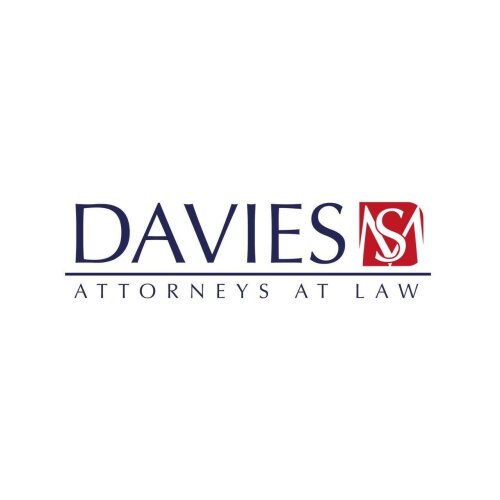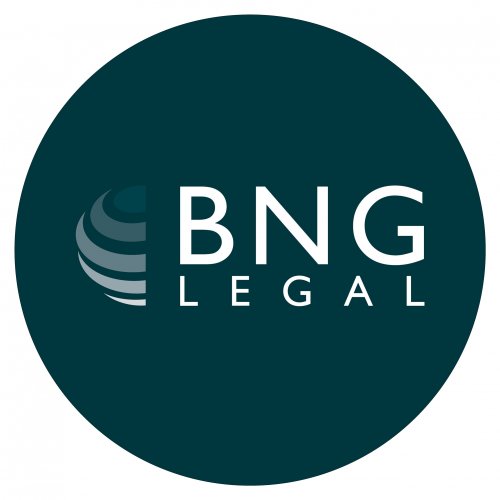Best Public-Private Partnerships (PPP) Lawyers in Phnom Penh
Share your needs with us, get contacted by law firms.
Free. Takes 2 min.
List of the best lawyers in Phnom Penh, Cambodia
About Public-Private Partnerships (PPP) Law in Phnom Penh, Cambodia
Public-Private Partnerships, commonly referred to as PPPs, are collaborative agreements between the Cambodian government and private sector entities to deliver public services, construct infrastructure, or stimulate economic development. In Phnom Penh, PPPs are increasingly used for projects such as road construction, utilities, public transportation, water supply, and health facilities. The aim is to leverage private sector expertise and investment while ensuring public interest and benefits. Cambodia has made significant efforts to create a regulatory framework that supports transparent and sustainable PPP initiatives.
Why You May Need a Lawyer
Engaging in a Public-Private Partnership project in Phnom Penh can be complex due to the legal, financial, and operational aspects involved. Here are some situations where legal assistance is often crucial:
- Drafting, negotiating, and reviewing PPP agreements and contracts
- Navigating government approvals, permits, and compliance requirements
- Understanding risk allocation and securing financing arrangements
- Resolving disputes between parties or with government authorities
- Conducting due diligence on the project feasibility and legal risks
- Protecting intellectual property and proprietary technology used in the project
- Ensuring compliance with anti-corruption and transparency rules
- Structuring bidding or procurement strategies
- Advising on tax implications and investment incentives for PPPs
- Handling project extensions, termination, or restructuring scenarios
Local Laws Overview
Cambodia’s legal regime for PPPs is developing and combines laws, sub-decrees, and official guidelines. The Law on Public-Private Partnerships, adopted in November 2021, provides the primary legal framework for PPPs in Cambodia. This law outlines the process for project identification, selection, procurement, implementation, and monitoring. The Ministry of Economy and Finance is central to PPP project approval, management, and oversight.
Key legal aspects include:
- Clear guidelines for competitive tendering and selection of private partners
- Requirements for feasibility studies and environmental assessments
- Rules on risk allocation, financial structure, and dispute resolution mechanisms
- Contractual obligations for both public and private entities
- Transparency and public oversight provisions to deter corruption
- Procedures for amending, extending, or terminating PPP agreements
- Compliance with broader Cambodian laws relating to construction, environment, and land
Frequently Asked Questions
What is a Public-Private Partnership (PPP)?
A PPP is an agreement where the government collaborates with a private company to finance, build, operate, or maintain infrastructure and public services.
Who oversees PPP projects in Phnom Penh?
The Ministry of Economy and Finance is primarily responsible for PPP oversight, alongside relevant line ministries for specific sectors such as transport or health.
Are there specific laws regulating PPPs in Cambodia?
Yes, the Law on Public-Private Partnerships and related sub-decrees set out the procedures and regulations for PPPs in Cambodia.
What types of projects are suitable for PPPs?
Projects involving infrastructure (roads, bridges, utilities), public transport, health, education, and environmental services are commonly developed through PPPs.
How are private partners selected for a PPP project?
Private partners are usually selected through a competitive bidding process to ensure fairness, transparency, and best value for the public.
What are the main risks in a PPP agreement?
Risks include financial exposure, changes in law or policy, construction delays, maintenance failures, and disputes over revenue sharing or responsibilities.
How long do PPP contracts usually last?
PPP contracts often span 15 to 30 years depending on the complexity and nature of the project.
What dispute resolution mechanisms are available?
PPP contracts typically include structured negotiation, mediation, or arbitration clauses to resolve disputes between parties without resorting to lengthy court proceedings.
Can foreign companies participate in PPP projects in Phnom Penh?
Yes, foreign companies are allowed to participate, subject to the applicable laws, bidding requirements, and investment regulations of Cambodia.
What should I consider before entering a PPP?
You should assess project feasibility, financial implications, legal risks, local regulations, and ensure all contractual terms are clear to protect your interests.
Additional Resources
If you need further guidance or support, consider reaching out to the following resources:
- Ministry of Economy and Finance, Cambodia - PPP Department
- Cambodia Investment Board/ Council for the Development of Cambodia
- Phnom Penh Municipality - Urban Planning and Investment Offices
- Cambodian Bar Association for legal practitioner referrals
- International development agencies with PPP advisory programs
- Reputable legal and consultancy firms specializing in PPPs
Next Steps
If you are considering involvement in a Public-Private Partnership in Phnom Penh, it is recommended to start by seeking legal advice from a qualified lawyer familiar with Cambodian PPP law and regulations. Begin by preparing any available project documentation, outlining your objectives, and assembling a list of questions or concerns. Reach out to a legal professional who can help you navigate the regulatory landscape, structure your agreements, and safeguard your interests. Staying informed and well-advised is the best way to ensure the success of your PPP initiative.
Lawzana helps you find the best lawyers and law firms in Phnom Penh through a curated and pre-screened list of qualified legal professionals. Our platform offers rankings and detailed profiles of attorneys and law firms, allowing you to compare based on practice areas, including Public-Private Partnerships (PPP), experience, and client feedback.
Each profile includes a description of the firm's areas of practice, client reviews, team members and partners, year of establishment, spoken languages, office locations, contact information, social media presence, and any published articles or resources. Most firms on our platform speak English and are experienced in both local and international legal matters.
Get a quote from top-rated law firms in Phnom Penh, Cambodia — quickly, securely, and without unnecessary hassle.
Disclaimer:
The information provided on this page is for general informational purposes only and does not constitute legal advice. While we strive to ensure the accuracy and relevance of the content, legal information may change over time, and interpretations of the law can vary. You should always consult with a qualified legal professional for advice specific to your situation.
We disclaim all liability for actions taken or not taken based on the content of this page. If you believe any information is incorrect or outdated, please contact us, and we will review and update it where appropriate.














